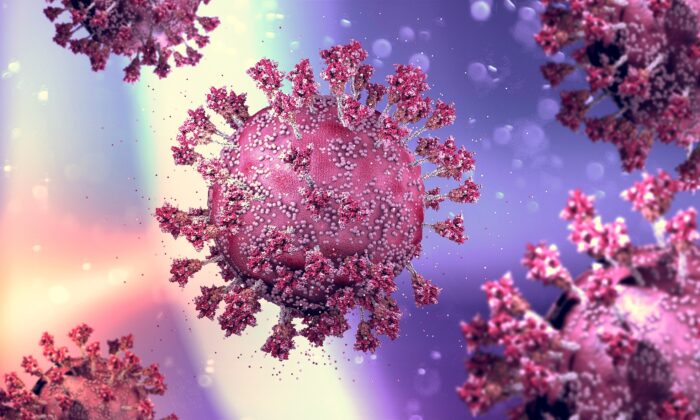NIH Documents Show $1.6 Billion Long COVID Initiative So Far Falls Short of Goals
Congress more than three years ago allocated $1.6 billion to the NIH to define, understand, and treat long COVID—and there’s largely nothing to show for it.
It’s been more than three years since Congress directed the National Institutes of Health (NIH) to investigate the long-term effects of COVID-19—and there are still no answers for the millions of Americans suffering from long COVID.
The NIH launched the $1.15 billion RECOVER initiative in early 2021 to understand, prevent, and develop potential treatments for long COVID. The NIH set deadlines for certain goals to be met when it allocated funding.
But according to documents obtained by The Sick Times, MuckRock, and STAT through the Freedom of Information Act (FOIA), the goals outlined in contracts between the NIH and the institutions tasked with leading the research have not been met despite passing the deadline, and nearly all of the initial funding has already been allocated.
“It’s a waste of money,” Dr. Darrel DeMello, a COVID-19 specialist, told The Epoch Times in an email. Dr. DeMello believes there should be a solution or a series of solutions for treating long COVID by now.
NIH Recruited Data Experts, Not Long COVID Experts
According to NIH documents, RECOVER relied on three central institutions for its long COVID research initiatives: New York University (NYU), Massachusetts General Hospital, and Research Triangle Institute.
Collectively, these three contracts account for a significant portion of the $1.15 billion that Congress allocated to the NIH for long COVID research in 2020. The contract documents offer insights into how the NIH established its long COVID research initiative, the scientific expertise that the NIH prioritizes in its research teams, and RECOVER’s initial goals and timelines.
Selecting researchers who have never treated acute COVID-19 infections will yield results, as those who treat COVID-19 infections are the ones who understand the actual underlying disease process, according to Dr. DeMello.
RECOVER Initiative Still Hasn’t Defined Long COVID
An initial goal of RECOVER was to better define long COVID and the risk of developing the condition after a SARS-CoV-2 infection. This goal has not been met.
The NIH reiterated that there is no definition of long COVID researchers can use to identify the disease, nor should insurers, disability agencies, or physicians use the study’s findings to clinically define or rule out long COVID. Additionally, the NIH acknowledged a working definition is evolving, but more research is needed before a definition can be used in clinical practice.
RECOVER Has Not Started Clinical Trials
The RECOVER website states that the NIH has finished planning the “full research protocols” for RECOVER observational studies, but clinical trial protocols have only been finalized for two of the five RECOVER clinical trials, and none of the clinical trials have completed enrollment.
“I know everybody has been frustrated with how slow things are moving, but good science takes time,” Dr. Michelle Harkins told The Epoch Times.
“It has taken longer than I would like to get them up and running, but there are some clinical trials in progress,” she said.
“In the RECOVER-VITAL study, we are looking at Paxlovid, and two-thirds of the enrolled population is already in the study. We are going to be doing a sleep study at the University of Mexico to look at light therapy and other treatments, and we will be taking some of our patients from the observational cohorts for the clinical trial,” Dr. Harkins said.
“In the ENERGIZE study, researchers will look into transcranial direct current stimulator to assess neuro-component, and another study will look at POTS [Postural orthostatic tachycardia syndrome] disease and IVIG [intravenous immunoglobulin],” Dr. Harkins added.
In response to concerns that most of the funds went to data collection and observational research instead of clinical trials that could provide potential treatments for long-COVID patients, Dr. Harkins said observational cohorts will not provide specific answers but will provide “biobanking specimens” that scientists and researchers can learn from, which is especially important for the pediatric cohort.
As to why it has taken so long for the clinical trials to get underway, Dr. Harkins said the enrollment process can take a while because participants have to be screened to ensure they qualify for the trial.
“We want to make sure we put them in the right trial. If you put everyone with long COVID into a trial, you may not get answers, but if you put the person into the right trial based on their symptoms, we might be able to understand what treatments work for which group of patients. So, it is a little more detailed than just putting people into trials,” she explained.
“Long COVID is very complex, and it affects multiple organ systems—so really finding one pill to fix long COVID is not going to happen, so we are trying to understand how people with certain symptoms respond to certain treatments,” she said. “I wish it were as easy as the vaccine, believe me. It is taking a long time, and that’s frustrating, I’m sure, for all of us—on the study side of things, too. I wish it were going faster, but we are making some progress.”
At the same time, Dr. Harkins said some things could be done to speed things up. For example, faster clinical trials could be set up to test treatments that some patients and doctors are already using with some success, like low-dose naltrexone.
“Can we set up a rapid clinical trial network like we had during COVID times, where we have a little less red tape and can push things through faster? There needs to be another arm that looks into a rapid clinical trial,” she said.
Dr. Harkins said they’re close to finishing enrollment for the clinical trials she’s working on, but they will still need to perform the trial and follow participants for 120 days afterward.
“I think we are going to have some answers on some of the clinical trials in the coming months, and hopefully, they’ll be causative answers so that we know how to help patients. In the meantime, the observational studies do still give us good information that we can use,” she said.
“But I do think we could have a faster turnaround for all of the things that need to get done. Perhaps having a central entity to help fast-track and really study this so that we can move things forward, because we need to have these mechanisms in place for the pandemic or health crisis,” she added.






